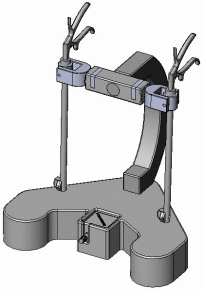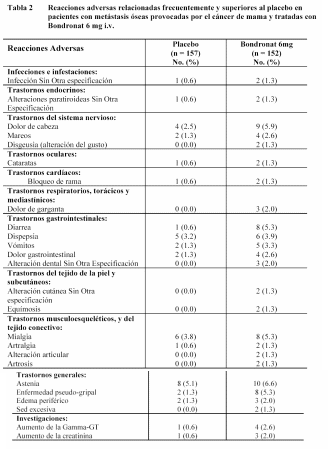TEXT ADOPTED BY PARLIAMENT TUESDAY 13 JUNE 2006
7 IMPLEMENTATION OF THE RECOMMENDATIONS ADOPTED BYCOUNCILLOR OCCUPATIONAL HEALTH AND SAFETY POLICY 2020 ADOPTED
101G AMERICAN BAR ASSOCIATION ADOPTED BY THE HOUSE OF
106C AMERICAN BAR ASSOCIATION ADOPTED BY THE HOUSE OF
1958 AGREEMENT ADOPTED PROPOSALS & SITUATION OF THEIR ENTRY
2 LIST OF CD REGULATIONS AS ADOPTED AS OF
Texts adopted by Parliament
|
Text adopted by Parliament |
|
||||
|
Tuesday 13 June 2006 - Strasbourg |
Provisional edition |
||||
|
Deliberations of the Committee on Petitions (2004-2005) |
|
|
|
|||||||||||||||||||||||||||||||||||||||||||||||||||||||||||||
|
The European Parliament , – having regard to its previous resolutions on the deliberations of the Committee on Petitions, – having regard to the Interinstitutional Agreement of 12 April 1989 on strengthening the right of petition(1) , – having regard to Articles 21 and 194 of the EC Treaty, – having regard to Rules 45 and 192(6) of its Rules of Procedure, – having regard to the report of the Committee on Petitions (A6-0178/2006), A. whereas the right to petition is a fundamental right inextricably linked with citizenship of the European Union, B. whereas the right to petition has been enshrined in the EC Treaty since 1992 and is confirmed in the Article 44 of the Charter of Fundamental Rights of the European Union and in Rule 191 of the Rules of Procedure of the European Parliament, C. whereas Parliament, the Council and the Commission have formally confirmed the right to petition and have provided a guarantee regarding inter-institutional follow-up on petitions, D. whereas the exercise of this right is important for EU citizens in particular, but also for the European institutions, because it allows them to benefit from a direct source of information regarding the concerns and difficulties encountered by ordinary citizens following the application of EU legislation, E. whereas Parliament regards petitions as a means by which it may improve its political oversight and control over the actions of the EU and the way in which the EU's policies are transposed and implemented by EU, national, regional and local authorities, F. whereas, following enlargement of the EU in May 2004, citizens from ten new Member States acquired the right to petition Parliament in their national languages and a considerable logistical effort has been necessary to enable them to benefit from that right, G. whereas there is always a need to ensure that EU citizens are properly informed of their legitimate right to petition Parliament about matters of concern falling within the fields of activity of the EU, H. whereas almost one-third of the petitions received by Parliament are declared inadmissible, partly as a result of insufficient information about the different competences of, respectively, Parliament, the European Ombudsman, the European Court of Human Rights, and the various national means of redress available, I. whereas Parliament has improved the procedure for examining petitions in order to be able to deal with petitions more effectively and transparently, but considers that more could be done to integrate and consolidate administrative structures with responsibility for the petitions process, in particular to further ensure a balanced and just treatment of petitioners, as well as to ensure the confidentiality of the process when requested by petitioners, J. whereas cooperation between Parliament, the Ombudsman and the Commission remains a prerequisite when they address the matters raised by citizens in their petitions and their complaints, and some streamlining of procedures between the three bodies, such as combining investigations with the petitions procedure when complaints and petitions are tabled on the same subject, might bring about greater efficiency, K. whereas, under Article 230 of the EC Treaty, Parliament has the right to bring actions before the Court of Justice of the European Communities under the same conditions as the Council and the Commission, and thus has at its disposal both the legal and the political instruments to respond more effectively to citizens' legitimate concerns, L. whereas Parliament, nevertheless, has constantly promoted loyal co-operation, notably with the Commission, as the guardian of the Treaties, as an effective means of remedying problems that have led citizens to seek its assistance, M. whereas, according to the Framework Agreement on relations between the European Parliament and the Commission of 26 May 2005(2) , "the Commission shall not make public any legislative proposal or any significant initiative or decision before notifying Parliament thereof in writing", N. whereas the Member States and the Council have a particular duty to guarantee to EU citizens that EU legislation is observed and properly applied by national, regional and local administrations, including by agencies acting under their authority, O. whereas it must be recorded that, naturally, not all admissible petitions received and investigated provide EU citizens with satisfaction, but that a reasonable proportion of petitions do lead to the resolution of a particular problem, or highlight a particular concern which may later serve Parliament when negotiating new Community legislation, 1. Reaffirms the vital role of its Committee on Petitions in reconnecting with the citizens of the EU, and in reinforcing the democratic legitimacy and accountability of the EU decision-making process in the eyes of European public opinion; 2. Recalls that petitions also alert the EU institutions to what individual citizens expect of EU policies and the extent to which those expectations are fulfilled; 3. Believes that its Committee on Petitions offers citizens an important conduit for providing their feedback concerning EU acts and policies, thus contributing to a strengthening of democratic control over Community legislation and its implementation at EU, national, regional and local levels; 4. Emphasises the fact that the petitions process offers Parliament the possibility to assess and, when necessary, to act in order to overcome ambiguities in the political objectives of the EU, as well as loopholes in, or the misapplication of, Community legislation by Member States; 5. Reinforces the view that, in principle, the petitions process should be a right which is targeted as EU citizens who do not have any other means of recourse to action by the European Parliament; recalls that Members of Parliament can avail themselves of this right through the rules of Parliament; reminds Members that they have other Parliamentary procedures at their disposal; 6. Underlines the significant role played by the Commission in providing preliminary analyses of petitions which helps the Committee to find appropriate solutions to the concerns and problems with which citizens are confronted during their everyday lives; 7. Stresses that further cooperation between Parliament, the Ombudsman and the Commission is mutually beneficial in fulfilling their common objectives to improve EU administration and developing better quality and more citizen-inspired legislation; emphasises the fact that common rules of conduct for all Community institutions must be established along the lines of the Code of Good Administrative Behaviour drawn up by the European Ombudsman and endorsed by Parliament; 8. Expresses its concern and surprise that, in this context, the Commission's 22nd annual report on monitoring the application of Community law (2004) (COM(2005)0570) fails to recognise the important role of the petitions procedure in identifying infringements because there is no reference to petitions in the body of the report, the only reference being in a table of Annex 1; 9. Considers that the Commission should notify decisions on opening infringement proceedings before the service of a letter of formal notice, in particular when Parliament has been petitioned on the issue in question; 10. Recommends that, whenever citizens file, on the same subject, both a petition to Parliament and a complaint to the Commission, both procedures should be properly coordinated when dealing with the issues raised, given that the right to petition is a fundamental right, safeguarded by the Treaty, and because Parliament provides a transparent framework for debates, which is a prerequisite for improved openness and enhanced public accountability; 11. Expresses its growing concern at the unreasonable and excessive amount of time - often spanning several years - which the Commission takes to pursue and conclude infringement proceedings after they are eventually launched, and its dissatisfaction with the frequent examples of Member States' non-compliance with decisions of the Court of Justice; considers that this undermines the credibility of the formulation and coherent application of EC law, and that it brings discredit on the objectives of the EU;
|
|
Last updated: 14 June 2006 |
22 LOCATION CODE STRUCTURE ADOPTED IN CENSUS 2001 THERE
5 [NOTE THESE PROVISIONS TO BE ADOPTED AS APPENDIX
61G201001 FLORIDA BUILDING CODE ADOPTED (1) THE FLORIDA BUILDING
Tags: adopted by, law-making, adopted, adopted, parliament, tuesday
- ALBUMIN CVVHD IN WILSONIAN LIVER FAILURE HARVEY EA ADELI
- JAAR 2003 DEVENTER 25 MAART 2003 AGENDAPUNT
- NA TEMELJU ČLANKA 89 ZAKONA O JAVNIM NABAVAMA (SLUŽBENI
- 14 IZVJEŠĆE O RADU ZA 2014 GODINUSAŽETA VERZIJA NABAVA
- NEW JERSEY IMMUNIZATION INFORMATION SYSTEM (NJIIS) INTERFACE SPECIFICATIONS TABLE
- R ZB PRESSEINFORMATION NOVEMBER 2019 H EMIS SLIM &
- WARSZAWA LIPIEC 2007 R INFORMACJA O NOWEJ USTAWIE O
- ESCRITOS PÁGINA 4 EL FICHERO DE ESCRITOS CONTIENE
- TECHNIKA KRYTERIA OCENIANIA OCENIAJĄC OSIĄGNIĘCIA NALEŻY ZWRÓCIĆ UWAGĘ NA
- Commenting-on-SAC-Prel-Recs-December-2017
- 1 STL FICHE TECHNIQUE R EALISATION D’UN FROTTIS 1
- “INFORMATIKA JE POTREBA A NE HIR” NEPOZNATI AUTOR 1
- VALIDAR DATOS DE UNA LISTA PUEDO DEFINIR LOS DATOS
- Á REA DE SERVICIOS OPERATIVOS EL AYUNTAMIENTO INICIA CON
- V211 FUNDUSZ PRZEWOZÓW AUTOBUSOWYCH – WIELKOPOLSKI URZĄD WOJEWÓDZKI W
- CASI DIRITTO PENALE II PROF ANDREA DI LANDRO CASO
- ZAŁĄCZNIK NR 1 DO UCHWAŁY ZARZĄDU NR 6X2020 Z
- INFORMAL DOCUMENT NO GRSP4236REV1 (42ND GRSP 1114 DECEMBER 2007
- 29250 CHAPTER 160 PAGE 7 29250 SECRETARY OF STATE
- “PATRONES DE INTEGRACION A LA ECONOMIA GLOBAL ¿QUÉ
- 421 SEA LEVEL RISE INVESTIGATION SEA ICE AND LAND
- WYKAZ PODRĘCZNIKÓW NA ROK SZKOLNY 20192020 DLA KLASY DRUGIEJ
- PŘÍLOHA Č 2 K ROZHODNUTÍ O ZMĚNĚ REGISTRACE SPZN
- ONHK90345422021 GNIEZNO DNIA 13042021 R OCENA JAKOŚCI WODY
- 1401 UNIT 11 HOMEWORK ROTATIONAL DYNAMICS 1 A 70
- E LECTION DES COMMISSIONS PARITAIRES D’ÉTABLISSEMENT DE L’UNIVERSITÉ PARIS
- LAURA RODRÍGUEZ LUZ DEL BARRIO THE BRIGHTEST OF THE
- ESTATUTOS DE LA ASOCIACIÓN “ALFONSO VI” DE ALUMNOS Y
- D DE SEGUIMIENTO UA982797151 ESTADO NO SE HAN RECIBIDO
- CRITERIOS ENERO 2014 48 DESPLAZAMIENTOS FUERA DE
 FORMATO GAFOR03 VERSIÓN 03 PLAN DE AULA FECHA APROBACIÓN
FORMATO GAFOR03 VERSIÓN 03 PLAN DE AULA FECHA APROBACIÓN ROBERTO DEL BARCO GAMARRA DOCTOR EN ESTUDIOS DEL
ROBERTO DEL BARCO GAMARRA DOCTOR EN ESTUDIOS DELRELACIÓN Y ACONTECIMIENTOS ACAECIDOS A LA ESCUADRA ESPAÑOLA QUE
 DATOS DEL CLIENTE NOMBRE RAZÓN SOCIAL U ORGANISMO CUITCUIL
DATOS DEL CLIENTE NOMBRE RAZÓN SOCIAL U ORGANISMO CUITCUILZAŁĄCZNIK NR 5 DO ZWD 152014 DIPLOMA PROJECT (TITLE
 SALUD ESTABLECE UN PROTOCOLO DE PREVENCIÓN DE GRIPE A
SALUD ESTABLECE UN PROTOCOLO DE PREVENCIÓN DE GRIPE AR2 SUPPLEMENT 650911K923 650911K80 EFFECTIVE 93092 PAGE 10 OF
GTBTNGTM54 PÁGINA 0 ORGANIZACIÓN MUNDIAL DEL COMERCIO GTBTNGTM54 20
 FISHERIES AGENCY MINISTRY OF AGRICULTURE FORESTRY AND FISHERIES GOVERNMENT
FISHERIES AGENCY MINISTRY OF AGRICULTURE FORESTRY AND FISHERIES GOVERNMENTCITADEL ENDURANCE COURSE 200708 PURPOSE THE PURPOSE OF THE
 DISEÑO Y CONSTRUCCION DE LA INTERFASE FISICA DE USUARIO
DISEÑO Y CONSTRUCCION DE LA INTERFASE FISICA DE USUARIO EXAMENES PASADOS MERCADO DE BIENES PRIMER PARCIAL PRIMAVERA 2009
EXAMENES PASADOS MERCADO DE BIENES PRIMER PARCIAL PRIMAVERA 2009 1 (HOSPITAL USE ONLY) CHART 00 TUSCANNY DR
1 (HOSPITAL USE ONLY) CHART 00 TUSCANNY DRÁREA BIOLOGÍA Y GEOLOGÍA EVALUACIÓN DE LA PRÁCTICA
TIMBER WAIVER CATEGORY 4 AND 6 DAILY WINTER PERIOD
LOS RECURSOS LITERARIOS LOS AUTORES LITERARIOS UTILIZAN EL LENGUAJE
APPENDIX C N TAIP APPENDIX C TRIMBLE ASCII INTERFACE
 24 FOTO JOVE 2019 INSCRIPCIONS FINS EL 31 DE
24 FOTO JOVE 2019 INSCRIPCIONS FINS EL 31 DE THE PAYMENT OF WAGES ACT 1936 FORM IV ANNUAL
THE PAYMENT OF WAGES ACT 1936 FORM IV ANNUAL COMISIÓN DE FARMACIA Y TERAPÉUTICA HOSPITAL UNIVERSITARIO VIRGEN DEL
COMISIÓN DE FARMACIA Y TERAPÉUTICA HOSPITAL UNIVERSITARIO VIRGEN DEL